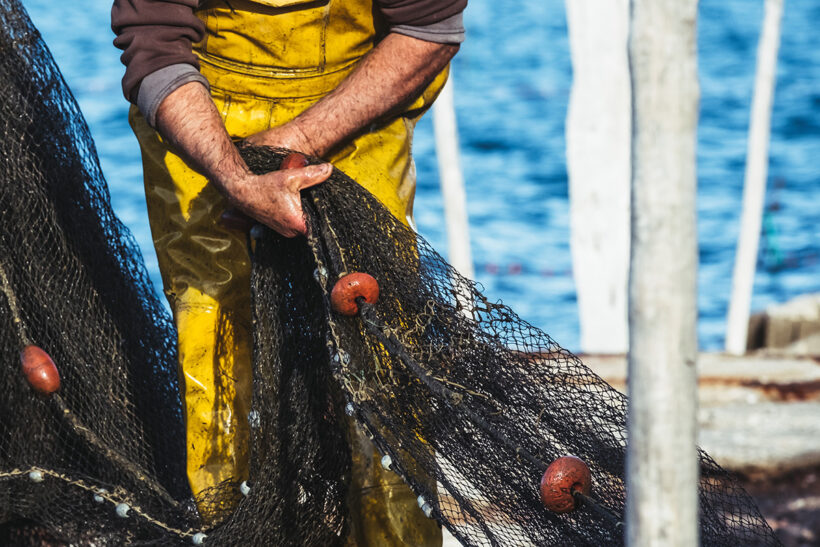No promises – but minister will consider proposals by MPs from across the political spectrum
The home office has indicated that is willing to look again at the English language requirements for foreign crews on fishing vessels to obtain work visas, following a debate last week in parliament.
The debate was called by Northern Ireland MP Jim Shannon, whose constituency includes the home ports of a number of prawn trawlers that have been relying to date on foreign crew working via transit visas.
Although the Home Office recently included fishermen in the skilled worker visa and shortage occupation immigration categories, and offered a package to help the industry adjust to the changes, the biggest obstacle to recruiting foreign crew remains the requirement for them to pass a written English test.
While many foreign fishermen can speak English well, few are able to pass a written test, which is required to achieve the B1 grade demanded by the government for a skilled worker visa. The grading system used by the government ranges from A1, classed as ‘understanding basic everyday expressions’ through to C2, a highly fluent level of reading and writing suitable for use in universities.
The B1 grade requires written skills enabling the applicant to produce ‘simple connected text on topics which are familiar or of personal interest’.
Jim Shannon suggested that in the short term, the A2 level, which only requires a sufficient level of spoken English for ‘a simple and direct exchange of information on familiar and routine matters’, would allow foreign crew to be safe at work, whilst giving them time to prepare for and take the higher- level B1 exam.
“We made it clear that that would be for one year, and then there would be a target to meet the B1 qualification,” Jim Shannon said. “I felt that that was a positive and constructive way forward, and it helps us as representatives of the fishing sector.”
Banff and Buchan MP David Duguid, meanwhile, argued that the required level should be reduced to A2. “While not denying the need to have a minimum level of English proficiency for health and safety reasons as well as to avoid exposure to abuse, the industry has asked for, as a proposal, to reduce the standard required from B1 to A2.
“If such a move could be made on the English language testing, that could be a game changer in helping this vital industry and our coastal communities not just survive but thrive – as we all know that they can.”
Orkney and Shetland MP Alistair Carmichael said: “The concession that has been made is absolutely meaningless if we insist that the crew who are to be employed under it are capable of achieving that level of English language qualification.
“We are asking for a simple tweak to a fairly small piece of legislation that will not make a massive difference to the number of people coming here.
“The people who come here to fish in my constituency are not coming to stay, because their families are still at home in the Philippines or Ghana. They come here to fish for six, eight or 10 months at a time, and then they want to go home. They come here and make good money working in an industry that looks after them and offers them opportunities.
“It is good for them and good for us. Why can the Home Office not just get out the way and let them do it?”
Immigration minister Robert Jenrick said the fishing sector had been using transit visas wrongly for a number of years, and it was vital to correct that.
He said foreign nationals coming to work in the UK, ashore or at sea, should comply with the immigration system – but he acknowledged there was a transition that had to be managed.
The minister told MPs: “In our 2019 manifesto, we committed to prioritising people who have a good grasp of English in our visa system. The English language requirement is fundamental to successful integration into British society, helping visa holders to participate in community life and work.
“The level we set is B1, or lower intermediate English, from the common European framework of reference for languages. That level of English is applied for skilled worker visas without exception, unless the applicant can prove that they are from a majority English-speaking country, of which there are some that provide fishermen and women to UK businesses.
“A good grasp of English can also be important in the workplace, particularly in busy or potentially dangerous environments, and to fulfil health and safety requirements. Workers who do not have a good command of English are more likely to be vulnerable to exploitation and less able to understand their rights.”
However, the minister said he would be ‘happy to consider’ MPs’ proposals, ‘although I do not want to give false hope that we are certain to take it forward’.
He accepted that ‘a high number’ of foreign crewmen would ultimately return to their own countries, but said that working here was nevertheless ‘a route to settlement’, in which case immigrants would need to be proficient in English.
‘Long-term answer is more domestic crew’
Robert Jenrick said the government was starting to engage with firms and industry representatives who had responded to the new skills package that was recently announced.
He said ‘the long-term, sustainable answer’ to crewing was not to rely solely on international labour but ‘to train more domestic workers to embrace technology and automation to the extent that that is applicable’. But he said he appreciated ‘the challenges that the sector faces and the difficulty in recruiting domestically at present’. “Nobody is blind to that, and the home secretary and I are certainly not.”
The minister pointed out that Defra continues to run the access to labour working group that was launched in June 2022 to improve relationships with the industry, which includes representatives from the catching, processing, aquaculture and shellfish sectors across the UK.
He added that the government had provided funding through the UK Seafood Fund to help the sector to recruit and train the next generation of fishermen, and that Defra had awarded £1.1m through the fund for skills and training.
This story was taken from the latest issue of Fishing News. For more up-to-date and in-depth reports on the UK and Irish commercial fishing sector, subscribe to Fishing News here or buy the latest single issue for just £3.30 here.
Sign up to Fishing News’ FREE e-newsletter here.






